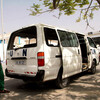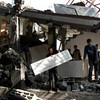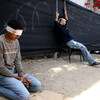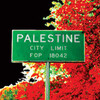
West Bank health services deteriorate as Palestinian medical sector strikes
8 May 2007
JERUSALEM, 8 May 2007 (IRIN) - A recently renewed strike by Palestinian public health workers is severely affecting services by government hospitals and primary healthcare centres throughout the West Bank, the International Committee of the Red Cross (ICRC) said on Monday. “The longer the strike continues, the greater the likelihood of long-term health effects,” said Eileen Daly, the ICRC’s health coordinator for the West Bank. Read more about West Bank health services deteriorate as Palestinian medical sector strikes








